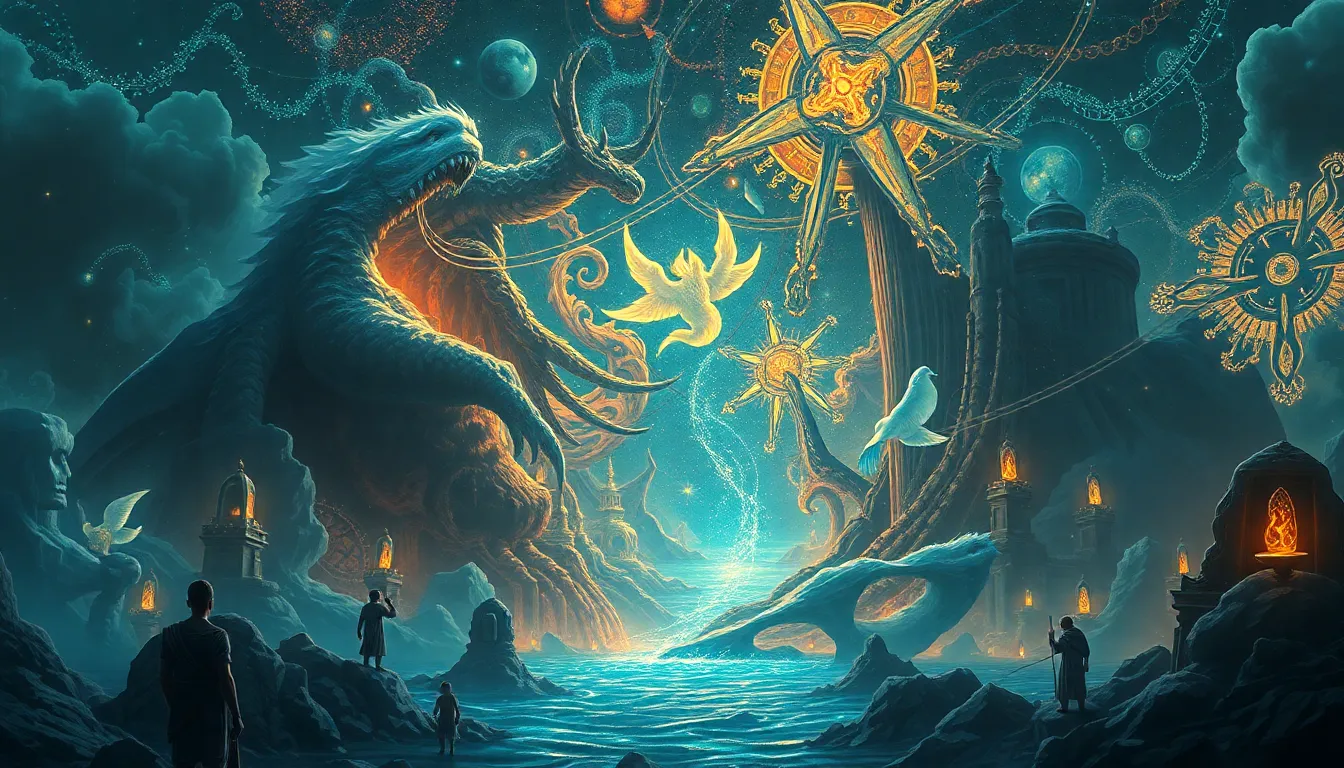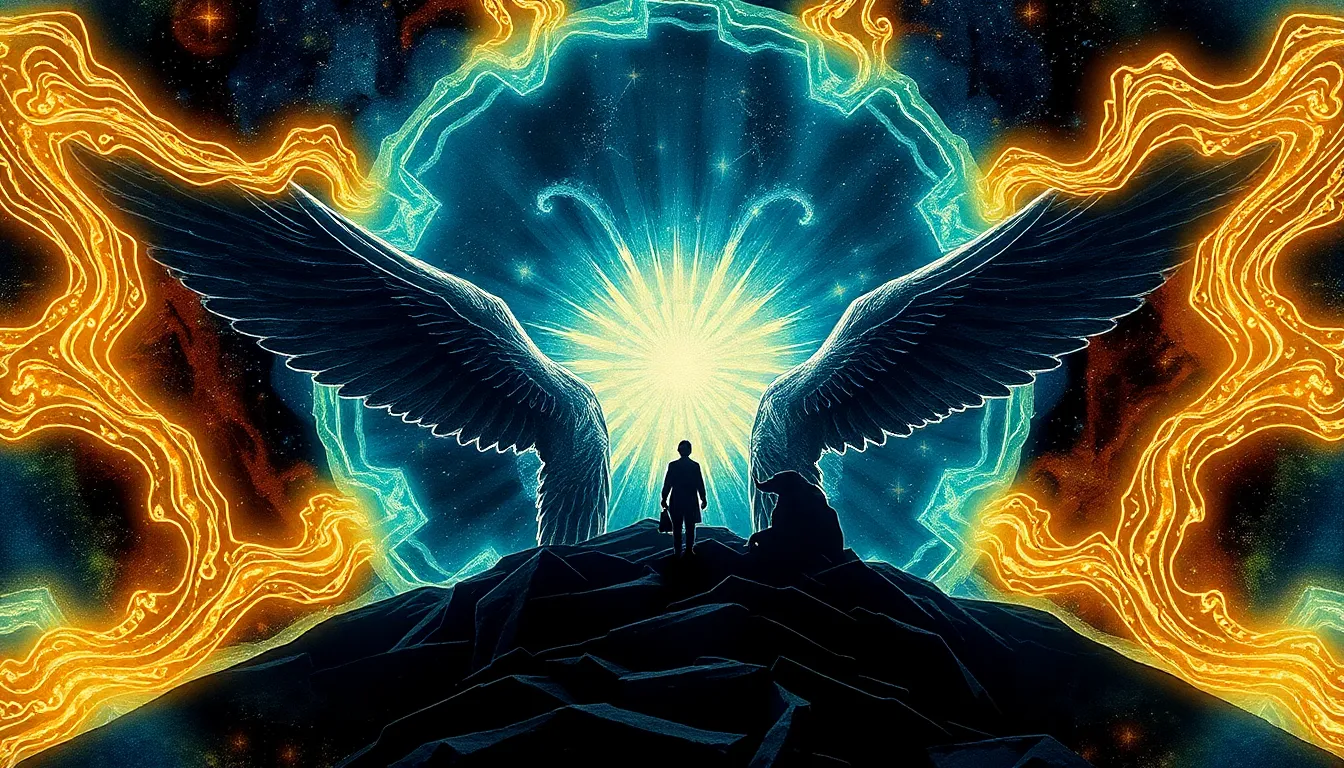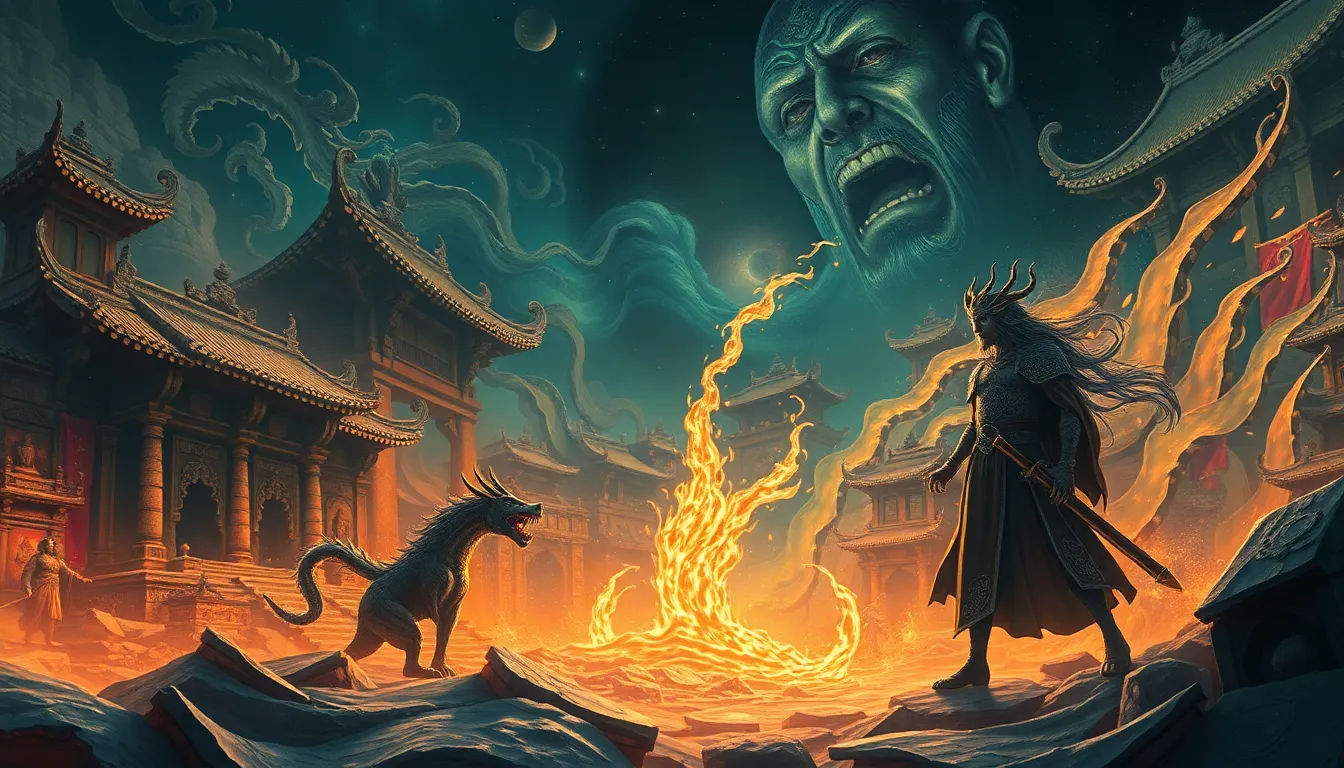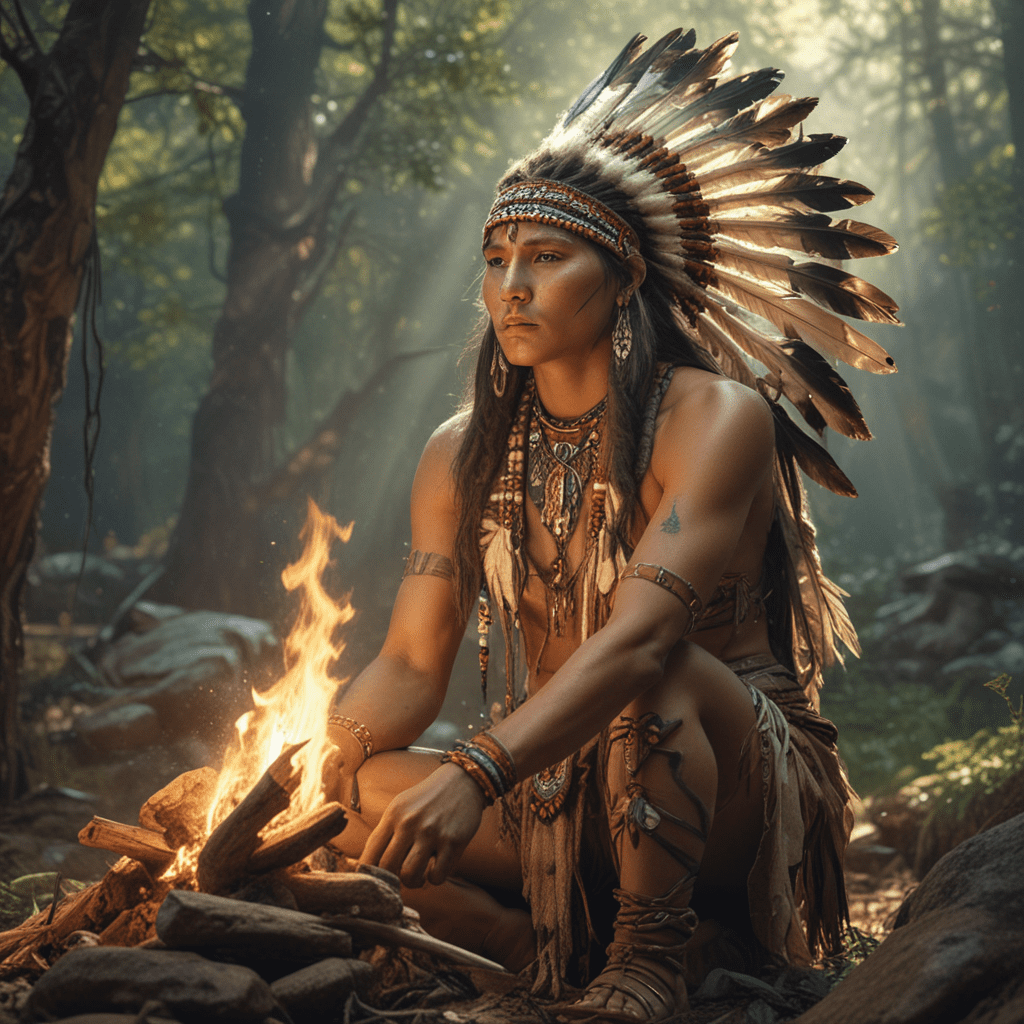The Genesis of Everything: Uncovering Creation Myths from Around the World
I. Introduction: The Importance of Creation Myths
Creation myths are foundational narratives that explain how the universe, Earth, and humanity came into existence. These myths are essential to the cultures that produce them, serving as a lens through which we can understand their beliefs, values, and worldviews.
Across various civilizations, creation myths have played a crucial role in shaping cultural identity and providing a framework for understanding existence. They address fundamental questions of where we come from and why we are here, offering insights that resonate across generations.
This article will explore the diverse creation myths from around the globe, examining their purposes, the significance of their stories, and their impact on culture and society. We will delve into ancient civilizations, indigenous narratives, Eastern and Western myths, and their contemporary interpretations.
II. The Purpose of Creation Myths
Creation myths serve several important functions within cultures:
- Explaining the universe and human existence: Myths provide a narrative framework for understanding the origins of the world and humanity’s place within it.
- Cultural identity and shared beliefs: They foster a sense of community and belonging among people, reinforcing shared values and collective identity.
- Moral and ethical lessons: Many creation myths impart important morals and ethical guidelines, teaching lessons about human behavior, relationships, and the natural world.
III. Creation Myths in Ancient Civilizations
Ancient civilizations produced some of the most profound creation myths that have influenced subsequent cultures:
A. Mesopotamian myths: Enuma Elish and the Epic of Gilgamesh
The Enuma Elish, a Babylonian creation myth, describes how the god Marduk defeated the chaotic waters and created the world from Tiamat’s body. This narrative reflects themes of order versus chaos and the supremacy of Marduk.
The Epic of Gilgamesh, while primarily an epic poem, also contains creation themes, exploring human mortality and the quest for eternal life, further illustrating the civilization’s understanding of existence.
B. Egyptian creation stories: Atum and the Heliopolitan cosmology
In ancient Egypt, Atum is often depicted as the first god who created himself and then gave birth to other deities. The Heliopolitan cosmology emphasizes the emergence of order from chaos, as Atum’s creation reflects the cyclical nature of life and death.
C. Indus Valley narratives: Insights from archaeological findings
While less documented, archaeological findings in the Indus Valley suggest a rich tapestry of beliefs regarding creation. Artifacts depict a reverence for fertility and nature, indicating that creation narratives likely existed but remain largely unrecorded.
IV. Indigenous Creation Myths
Indigenous cultures offer a wealth of creation stories that highlight their unique relationships with the land and environment:
A. Native American creation stories: The Earth Diver and Sky Woman
Many Native American tribes have creation myths involving an Earth Diver, a figure who dives into the primordial waters to bring up earth, allowing for the creation of land and life. The story of Sky Woman, who falls from the sky and creates the Earth, is also prevalent in various tribes, emphasizing the sacredness of nature.
B. Aboriginal Australian Dreamtime narratives
In Aboriginal Australian culture, the Dreamtime refers to a time when ancestral spirits created the world, shaping the land and its inhabitants. These stories are intimately tied to the geography and ecology of Australia, revealing a deep connection between the people and their environment.
C. African tribal myths: The role of trickster figures
African creation myths often feature trickster figures, such as Anansi the Spider, who disrupt conventional order to create new possibilities. These narratives reflect the values of adaptability and resilience, highlighting the complexity of creation and existence.
V. Eastern Creation Myths
Eastern philosophies and religions offer rich creation narratives that reflect their unique cultural contexts:
A. Hindu cosmology: The Vedic creation hymns
The Vedic creation hymns explore the concept of ‘Brahman’ as the ultimate reality. The hymn ‘Nasadiya Sukta’ contemplates the origins of the universe, emphasizing the mystery and uncertainty of creation.
B. Chinese mythology: Pangu and the cosmic egg
In Chinese mythology, Pangu is said to have emerged from a cosmic egg, creating the world as he separated the heavens and the earth. This myth emphasizes the themes of duality and balance in nature.
C. Japanese creation myths: Izanagi and Izanami
The Japanese creation myth features Izanagi and Izanami, who, through their union, birthed the islands of Japan and various deities. This narrative reflects the importance of family and harmony in Japanese culture.
VI. Western Creation Myths
Western creation myths often convey themes of divine order and moral lessons:
A. Biblical accounts: Genesis and the Book of Job
The Book of Genesis presents a systematic account of creation, emphasizing the power of God and the inherent goodness of creation. The Book of Job explores existential questions, reflecting on human suffering and divine will.
B. Greek mythology: Chaos, Gaia, and the Titans
Greek mythology begins with Chaos, followed by the emergence of Gaia, the Earth. The stories of the Titans highlight the interplay of power, conflict, and the eventual establishment of order through the Olympian gods.
C. Norse cosmology: Yggdrasil and the Nine Realms
Norse mythology presents Yggdrasil, the World Tree, as a central element connecting the Nine Realms. This cosmology reflects the interconnectedness of all beings and the cyclical nature of life and death.
VII. Comparative Analysis of Creation Myths
Upon examining creation myths from various cultures, several common themes and differences emerge:
A. Common themes across cultures
- Creation from chaos or void
- Divine or supernatural intervention
- Thematic emphasis on balance and harmony
B. Differences in approach to the concept of creation
Some cultures emphasize a singular act of creation, while others depict ongoing processes of creation and destruction, reflecting their philosophical outlooks.
C. The influence of environment and geography on myth development
Creation myths are often shaped by the environment, with cultures in arid regions having different narratives than those in lush, fertile areas, showcasing the relationship between people and their surroundings.
VIII. The Psychological and Sociological Impact of Creation Myths
Creation myths resonate deeply within human psychology and societal structures:
A. Myths as a reflection of human psychology
Creation myths often reflect collective human experiences and fears, addressing themes of chaos, order, and existential questions.
B. The role of creation myths in societal structure and governance
Many societies have used creation myths to legitimize leadership and social hierarchies, linking authority to divine creation or favor.
C. Creation myths and their influence on modern belief systems
Contemporary belief systems, including religious, philosophical, and scientific perspectives, continue to be influenced by ancient creation narratives, shaping our understanding of existence.
IX. Contemporary Interpretations and Adaptations
Creation myths have found new life in modern culture:
A. Modern literature and film inspired by creation myths
Numerous works of literature and film draw from creation myths, reinterpreting them for contemporary audiences and exploring their themes in new contexts.
B. The role of science and mythology in understanding creation
While science provides empirical explanations of the universe’s origins, mythology offers existential insights that complement scientific understanding, creating a dialogue between the two.
C. Cultural revival and the preservation of ancient myths
Many cultures are experiencing a revival of interest in their creation myths, seeking to preserve these narratives as vital components of their heritage and identity.
X. Conclusion: The Enduring Legacy of Creation Myths
Creation myths are more than mere stories; they are profound narratives that encapsulate the essence of human experience, culture, and belief. Their enduring legacy continues to inspire, educate, and provoke thought in a world grappling with its origins and purpose. By exploring these myths, we gain insight into the diverse tapestry of human existence and the universal questions that bind us all.




